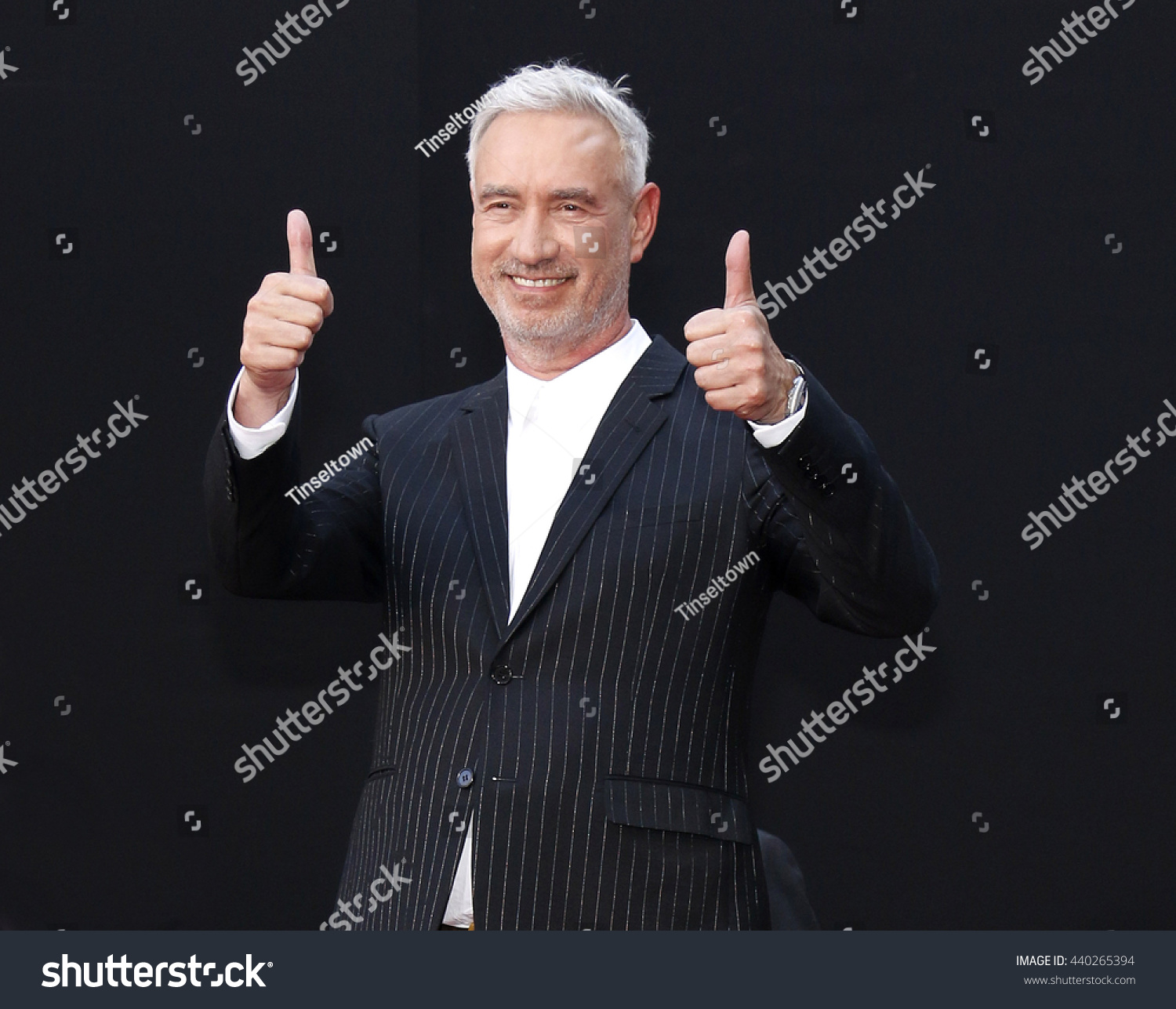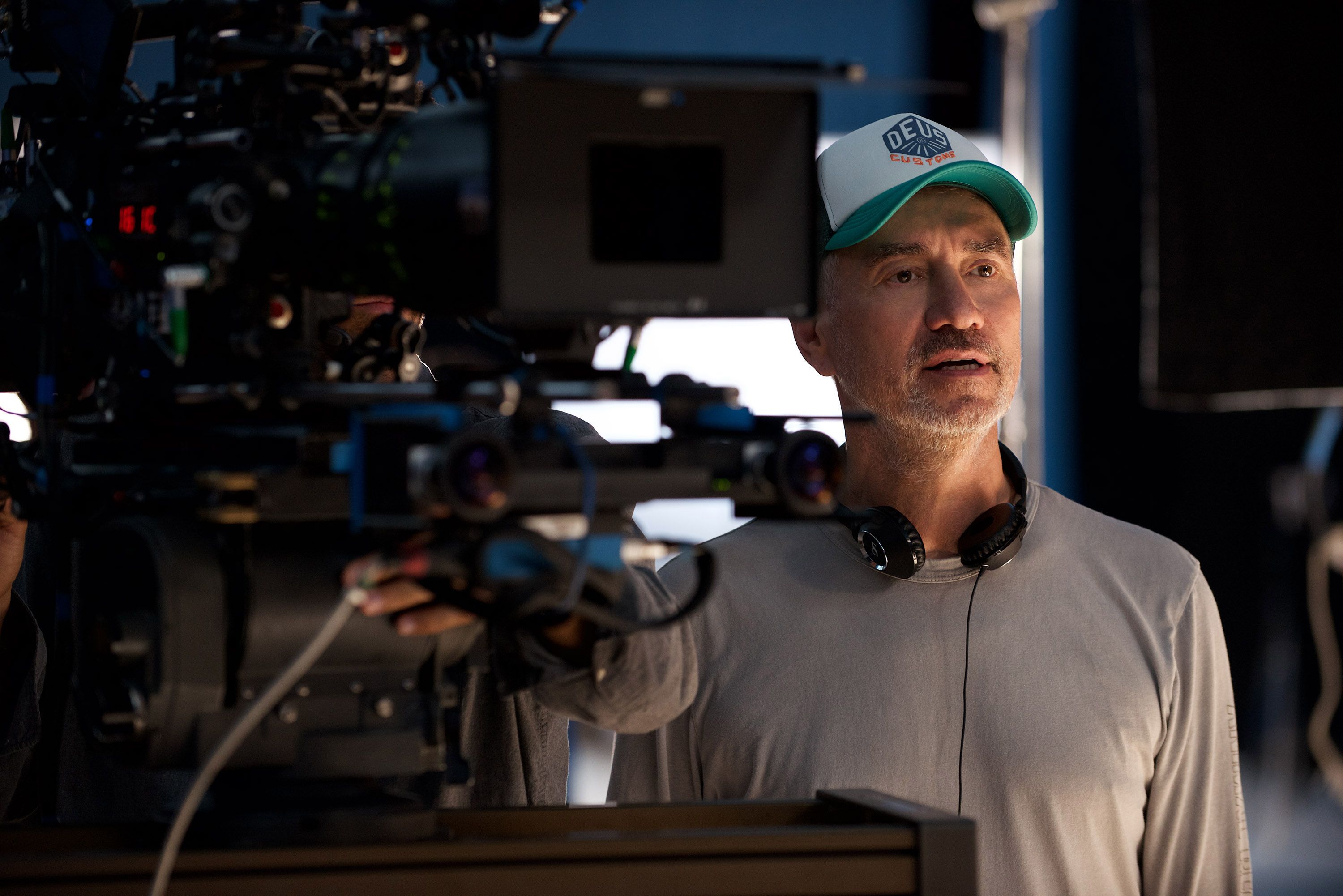Roland Emmerich: The Visionary Behind Epic Disaster Movies
Have you ever felt the earth shake, or watched towering cities crumble on the big screen? That, you know, feeling of awe and slight terror often comes courtesy of one remarkable filmmaker. It's almost as if, for many, the name Roland Emmerich is synonymous with truly grand cinematic destruction.
Roland Emmerich, a German film director, producer, and screenwriter, has, in a way, carved out a unique space in Hollywood. He's the mastermind behind, you know, some of the most memorable blockbuster films of the last few decades.
Often called the "king of disaster movies," his work, you see, consistently delivers spectacle on a truly massive scale. This article will, basically, explore his incredible career, his signature style, and why his films still resonate with audiences today, even in the year 2024.
Table of Contents
- Roland Emmerich: A Director's Journey
- The Signature Style: Epic Scale and Global Stakes
- Mastering the Disaster Genre
- Frequently Asked Questions About Roland Emmerich
Roland Emmerich: A Director's Journey
Roland Emmerich, a German film director, producer, and screenwriter, actually began his creative path quite early. He made a name for himself, in a way, with The Noah's Ark Principle back in 1981. This early work, you know, set the stage for a career that would redefine the blockbuster film.
His journey from Germany to Hollywood is, sort of, a testament to his unique vision. He quickly became known for his ability to craft stories that, you know, captured global imagination. His films often feature massive special effects and truly high stakes, making them, basically, a go-to for spectacle.
As a director, he tends to be very hands-on with his projects, often taking on roles as a producer and screenwriter too. This comprehensive approach, in some respects, allows him to maintain a consistent vision across his body of work. It’s that dedication to the craft that, arguably, makes his movies so distinctive.
Roland Emmerich is, in essence, a storyteller who understands the power of visual narrative. His early films showed glimpses of the large-scale thinking that would define his later career. He learned, you know, the ropes of filmmaking in Germany, developing a style that would eventually appeal to audiences worldwide.
His move to Hollywood, you see, opened up new possibilities for him to realize his grand cinematic ideas. He was able to access resources and talent that allowed him to bring truly epic visions to the screen. This transition, basically, marked a significant turning point in his professional life.
He's a director who, you know, isn't afraid to tackle big themes, often exploring humanity's response to overwhelming challenges. This willingness to, sort of, push boundaries has made him a recognizable figure in the film industry. His work, in a way, stands out for its ambition and scope.
He has, in fact, built a career on delivering exactly what audiences expect from a big summer movie: thrills, action, and a whole lot of visual flair. It's a formula that, you know, he has honed over many years, making him a reliable name for those seeking cinematic excitement.
Personal Details & Bio Data
| Detail | Information |
|---|---|
| Name | Roland Emmerich |
| Nationality | German |
| Occupation | Film Director, Producer, Screenwriter |
| Known For | Blockbuster films, Disaster movies |
| Notable Works | The Day After Tomorrow (2004), Godzilla (1998), Independence Day, The Noah's Ark Principle (1981) |
The Signature Style: Epic Scale and Global Stakes
When you think of Roland Emmerich, you probably think of truly grand destruction, right? He's the person who, basically, brings entire cities to their knees on screen, and yet, somehow, makes it feel utterly captivating. This is his signature, you know, the way he handles epic scale.
His movies are, pretty much, global events. Take Independence Day, for example. It's a film where, as a matter of fact, the whole world unites against a common threat. Or consider The Day After Tomorrow from 2004, which, you know, depicts a sudden, dramatic shift in climate. These stories, in a way, resonate because they tap into universal anxieties about the future of our planet.
He often employs, actually, a large ensemble cast, allowing audiences to connect with multiple storylines as the world faces peril. This technique, you see, helps to humanize the massive events unfolding. It’s not just about buildings falling; it’s about people trying to survive, which is, honestly, a key part of his appeal.
Another characteristic is his use of, you know, groundbreaking visual effects. For films like Godzilla in 1998, he pushed the boundaries of what was possible on screen for its time. His commitment to visual spectacle is, basically, unwavering, making each of his films, you know, a truly immersive experience.
He has, in some respects, earned the title "the king of disaster movies" for a reason. His work consistently delivers high-octane action and truly memorable sequences of widespread chaos. Yet, through it all, there's often a thread of hope and human resilience, which is, like, a core message in many of his stories.
The scope of his films is, honestly, what sets them apart. He doesn't just show a localized event; he shows the world reacting to an existential threat. This global perspective, you know, makes his films feel very significant, drawing in viewers from all walks of life.
He understands, arguably, the spectacle of destruction. It's not just about showing things break; it's about showing the *impact* of those breaks on human lives. This attention to both the big picture and the personal drama is, basically, a hallmark of his approach.
His films often feature iconic landmarks meeting their demise, which, you know, creates a powerful visual impact. It’s a way of signaling the scale of the threat, making the audience understand that no place is safe. This choice, you see, adds a layer of emotional weight to the destruction.
He also has a knack for, in a way, crafting compelling human stories amidst the chaos. The characters in his films, while sometimes archetypal, often represent the everyman, making their struggles relatable. This connection, honestly, helps ground the truly fantastical elements of his plots.
His films are, basically, a masterclass in building tension. He lets the threat slowly build, creating a sense of dread before unleashing the full force of the disaster. This slow burn, you know, often makes the eventual payoff even more impactful for the audience.
Mastering the Disaster Genre
Roland Emmerich has, arguably, perfected the art of the disaster film. He understands, you know, how to build tension, introduce a catastrophic event, and then show the human response to it. His films, in a way, are often about humanity’s ability to come together in the face of overwhelming odds.
From the alien invasion in Independence Day to the environmental collapse in The Day After Tomorrow, his narratives, you know, consistently place ordinary people in extraordinary circumstances. This focus on the human element, honestly, makes the larger-than-life destruction feel more impactful.
He’s known for his ability to craft, you know, suspenseful scenarios that keep viewers on the edge of their seats. The pacing of his films, as a matter of fact, often builds slowly, allowing the audience to truly grasp the impending doom before the full scale of the disaster unfolds. It's a formula that, basically, works very well for him.
While some directors might shy away from, you know, depicting widespread destruction, Emmerich embraces it. He sees the cinematic potential in, you know, showing the world dramatically changed. This commitment to, sort of, pushing visual boundaries has made his films, honestly, a benchmark for special effects in the genre.
His films are, in a way, a guide to how to survive the apocalypse, or at least, how people might react to one. He explores themes of family, courage, and sacrifice amidst the chaos. This blend of personal stories with global events is, you know, a hallmark of his successful approach to the genre.
You can, you know, find many guides online that rank his films from "worst to best," which, arguably, shows the breadth and depth of his work within this niche. Each film, you see, offers a different take on what a global catastrophe might look like, making his filmography, basically, a fascinating study for fans of the genre.
He has a particular knack for, you know, creating memorable moments of heroism and sacrifice. These moments, often small acts of bravery amidst vast destruction, resonate deeply with audiences. It’s that human spirit, you know, that often shines through in his movies.
The scale of the threats in his films often feels very real, even when the premise is fantastical. This is because he grounds the stories in recognizable human emotions and reactions. It’s a technique that, basically, allows viewers to suspend disbelief and truly get lost in the narrative.
He has, in fact, influenced many other filmmakers in the disaster genre. His pioneering work in visual effects and storytelling has set a standard for how these types of films are made. You can see his touch, you know, in many movies that came after his major hits.
His films are, honestly, a form of escapism, allowing audiences to experience extreme scenarios from the safety of their seats. This experience, you know, can be both thrilling and thought-provoking, making his movies more than just simple action flicks.
Roland Emmerich's legacy is, in a way, tied to his mastery of this particular film style. He has consistently delivered films that meet audience expectations for spectacle and excitement. It’s a testament to his understanding of what makes a truly engaging disaster movie.
Learn more about his filmography on IMDb.
Learn more about blockbuster movies on our site, and link to this page different film genres.
Frequently Asked Questions About Roland Emmerich
What kind of movies does Roland Emmerich direct?
Roland Emmerich is, you know, primarily known for directing disaster and action films. He's often called the "king of disaster movies" because of his work on films like Independence Day, The Day After Tomorrow, and Godzilla. His films, you see, typically feature large-scale destruction and global stakes.
Is Roland Emmerich a German film director?
Yes, that's right. Roland Emmerich is, in fact, a German film director, producer, and screenwriter. He, you know, began his career in Germany before gaining international recognition for his Hollywood blockbusters.
What was Roland Emmerich's first major film?
While he made earlier films, Roland Emmerich made a name for himself, in a way, with The Noah's Ark Principle in 1981. This film, basically, helped establish his unique directorial style and set him on the path to creating the large-scale spectacles he's known for today.
Roland Emmerich's impact on, you know, the world of cinema is truly undeniable. His ability to craft stories of global peril and human resilience has, basically, cemented his place as a master of the blockbuster. He continues to, in a way, shape how we view large-scale cinematic events.
His films, you see, offer a unique blend of spectacle and heartfelt storytelling, making them, you know, a staple for anyone who enjoys thrilling, high-stakes adventures on the big screen. It’s clear his vision, honestly, continues to capture imaginations around the globe.

194 Roland emmerich Images, Stock Photos & Vectors | Shutterstock

Roland Emmerich – Movies, Bio and Lists on MUBI

Roland Emmerich Set to Direct Moonfall for Universal | Collider